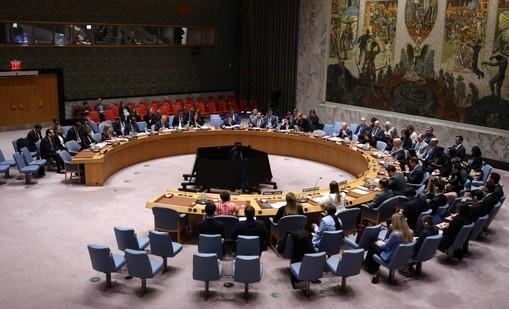
Was LeT involved? UNSC asks Pak on J&K attack, refuses to accept ‘false flag’ claim
In a significant development, the United Nations Security Council (UNSC) has refused to accept Pakistan’s “false flag” narrative on the recent attack in Pahalgam, Jammu and Kashmir. The UNSC members, who met in a closed-door session, also questioned whether the terror outfit Lashkar-e-Taiba (LeT) was involved in the attack.
The attack, which occurred on October 7, left several people injured, including tourists and local residents. Pakistan has been accused of sponsoring terrorism in Kashmir, and the LeT is one of the most prominent terror outfits based in the country.
According to reports, some UNSC members brought up the targeting of tourists on the basis of religion, which has been a concern in the region. The attack has raised questions about the safety and security of tourists in Jammu and Kashmir, which is a popular destination for travelers.
Pakistan has been trying to deflect blame for the attack, claiming that it was carried out by Indian security forces to create a “false flag” operation. However, the UNSC members are not buying into this narrative, and instead are seeking answers from Pakistan about its role in the attack.
The UNSC’s refusal to accept Pakistan’s explanation is a significant blow to the country’s diplomatic efforts to portray itself as a victim of international terrorism. Pakistan has been trying to shift the focus away from its own role in sponsoring terrorism in Kashmir and instead blaming India for the violence in the region.
The attack in Pahalgam is the latest in a series of violent incidents that have occurred in Jammu and Kashmir in recent months. The region has been plagued by violence and terrorism for decades, and the situation has deteriorated further in recent years.
The UNSC’s questioning of Pakistan’s role in the attack is a significant development in the ongoing diplomatic efforts to address the situation in Jammu and Kashmir. The international community has been increasingly critical of Pakistan’s support for terrorism in the region, and this latest development is likely to put further pressure on the country to take concrete action to address the issue.
The attack in Pahalgam has also highlighted the need for improved security measures to protect tourists and local residents in the region. The Jammu and Kashmir government has been working to improve security arrangements in the region, but more needs to be done to prevent such attacks from occurring in the future.
In conclusion, the UNSC’s refusal to accept Pakistan’s “false flag” narrative on the Pahalgam attack is a significant development in the ongoing diplomatic efforts to address the situation in Jammu and Kashmir. The international community must continue to pressure Pakistan to take concrete action to address its support for terrorism in the region, and the Jammu and Kashmir government must continue to work to improve security arrangements to protect tourists and local residents.



